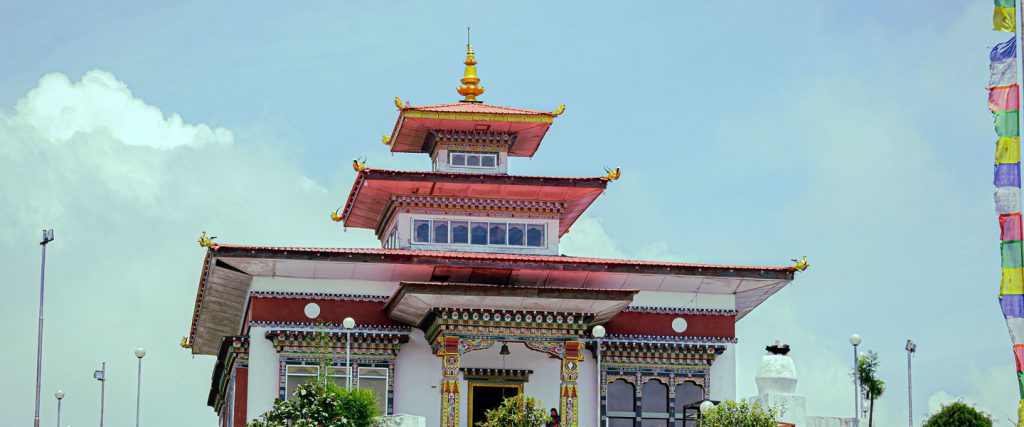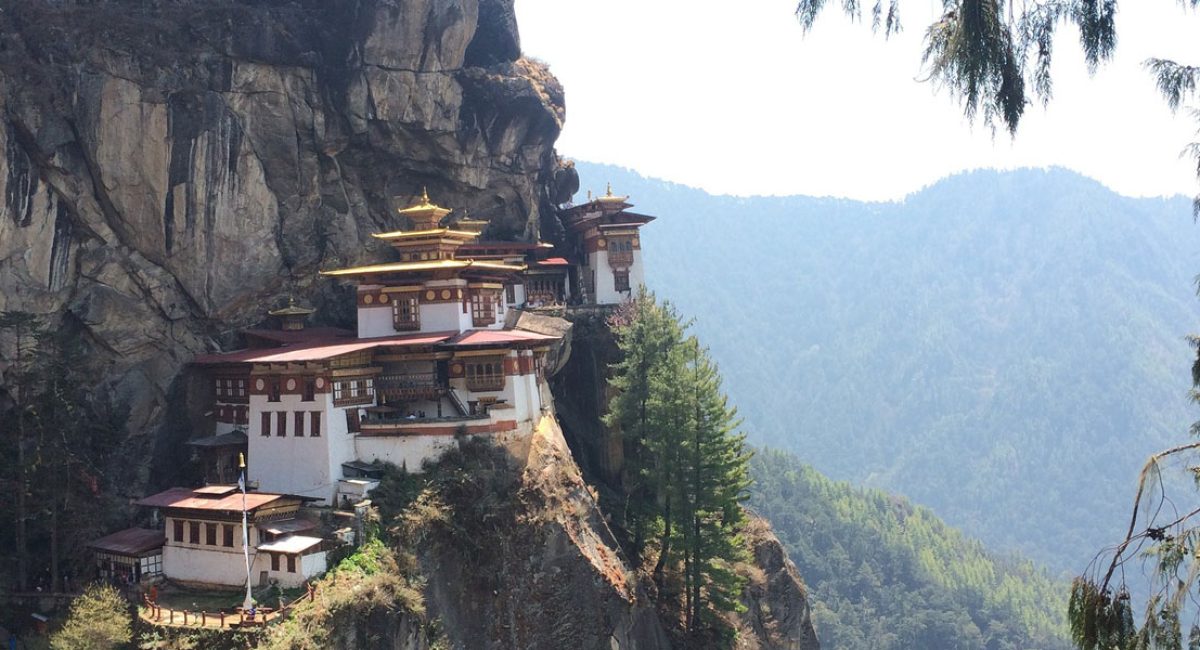Bhutan pins hopes on its Gross National Happiness index, hopes tourists will return
Trying to keep out COVID, tiny Bhutan relies on its Gross National Happiness index, and hopes tourists will return
By Natalie Jesionka
Sat., Jan. 23, 2021
Travelling through the beautiful mountainous Kingdom of Bhutan with its cloud-covered forests sounds idyllic in a pandemic lockdown — a dream being marketed by the tiny landlocked nation whose vital tourism business has been crushed by COVID.
With a population of 750,000, the eastern Himalayan kingdom has reported just 850 COVID-19 cases and one death from the virus in early January, and is negotiating the purchase of a million vaccines from India. But there are challenges ahead as the nation begins to consider easing its lockdown restrictions in a bid to reopen.
The country is banking on its remote location, COVID response strategy and its unique Gross National Happiness index (GNH) to help guide restoration of its biggest source of employment.

Online, there are rumblings on social media and comments on articles in local newspapers questioning the lockdown, and expressing worries over lost livelihoods should the lockdown be extended.
And according to Bhutan’s national newspaper, the Kunsel, there is concern about evictions and rent increases, and retail businesses are struggling to make sales with few customers. Bhutan’s economy has contracted 6.8 per cent since the start of the pandemic.
But while the economy is an important metric, the country’s Gross National Happiness index, which measures equitable socio-economic development, environmental conservation, preservation of culture, and good governance, is equally important.
“The use of the phrase ‘happiness’ is a little bit unfortunate — they aren’t speaking of happiness in the Western sense, it’s very much rooted in the Buddhist understanding of deep-seated contentment,” said Kent Schroeder, an expert on GNH and executive director of the Toronto-based Bhutan Canada Foundation.
“Some people dismiss GNH, thinking the Bhutanese aren’t all that happy, but GNH puts the enabling conditions in place for people to choose happy lives. You want to create a society that has health care, education and employment.”
Things are not so happy these days for Sangay Wangchuk, owner of Dhumra Farm Resort, a luxury agricultural farm hotel with spectacular views of the mountains of Phunaka, in western Bhutan. Business was strong until the end of last February, and in March the resort shut down completely during Bhutan’s first lockdown.
“In 2019, we had 1,500 tourists come to the resort, but in 2020 we didn’t even get to 100 people,” said Wangchuk, who has been able to avoid layoffs because of the working farm on the property, and a small grant from the royal COVID relief fund. His staff are cultivating new crops such as bananas and using the time to make repairs around the property, waiting and hoping that tourism will return.
Since March, King Jigme Khesar Namgyel Wangchuck has implemented a COVID strategy that uses the complex metrics of GNH index including psychological well-being, time use, community vitality, good governance and living standards while working to mitigate spread of the virus by closing borders, waiving loan interest and tapping into his relief fund built up over years from a special tourism levy, to provide a basic income for Bhutan’s 150,000 jobless workers.
The king also rented apartments for the diaspora community affected by COVID in New York City, and ordered the government airline DrukAir to fly to different countries to pick up Bhutanese living abroad and bring them home.
Some of those who tested positive for the virus received phone calls and visits from the king, who is known for travelling the country on foot to meet his subjects.
Officials had hoped tourism could restart in March, but Bhutan’s director general of tourism, Dasho Dorji Dhradhul, now says reopening will be reliant on whether neighbouring countries can gain control over the pandemic. The tourism council has been supporting out-of-work guides with jobs in infrastructure construction projects and giving them language lessons.
Much of this support comes from a daily $315 tariff that tourists must pay. It includes housing and guides, but $80 is also put toward a sustainable development fund that is usually used to support free health care and education.
Bhutan is well prepared for tourism to resume, says Dhradhul.
“There will be a so-called new normal post-COVID for many destinations,” he says. “But it won’t be new to Bhutan. We have been practising this for the last 50 years. High value, low volume.” Dhradhul expects to see a shift in global tourism with individual travel, less crowding, and avoidance of over-tourism as priorities.
Never miss the latest news from the Star, including up-to-date coronavirus coverage, with our email newsletters.
Stephen Couchman is a Canadian who left Clarksburg, Ont., for Bhutan in October 2019, to work as a project director building the Trans-Bhutan trail, a 16th-century path running 430 kilometres from Haa to Trashigang. In a month-long hike on the trail, trekkers can discover red pandas, black neck cranes and snow leopards in a rhododendron forest.
“Bhutan is putting up a strong defence partially because they don’t have the desire or capacity to fight COVID-19 head-on medically,” Couchman says. “The crisis has been a reminder of the country’s need for independence from India and others for food, fuel and labour, and of their reliance on tourism, which will impact the economy for many years to come.”
Couchman points to Desupps, a mandatory national service organization, also known as the Bhutanese guardians of peace, as an example of the Bhutanese commitment to co-operation. Desupps, who serve for one year, are highly honoured, and are trained in preparedness for national calamities. They fight fires, serve as a border patrol, and now they are handing out masks, and staffing COVID response centres.
“There is no question as to what needs to be done and that community takes precedence over individual freedoms. From an outsider’s perspective, the intentionality and co-ordination here represents humanity at its best,” said Couchman.
The trail is part of the king’s vision for a symbol of national unity, and part of the infrastructure building pandemic response plan for jobless guides.
Matt DeSantis is the founder of MyBhutan, a tour operator that connects travellers and schools with authentic local experiences in Bhutan. Ten years ago, DeSantis left Connecticut for Bhutan for a month-long trip. He now largely lives there full time.
“Life is very comfortable in Bhutan,” he says. “It is a very safe and peaceful community surrounded by undisturbed nature. The two coexist with each other.”
DeSantis says he has helped reshape travel in Bhutan by making the experience more seamless, so travellers would not have to use bank transfers and instead, could send payments directly to Bhutanese tour operators.
Tours are already booking as early as April, DeSantis says, and certainly in September. But he’s quick to add that the reopening is in flux.
Desantis is working with the voluntourism organization Globe Aware and he plans to bring 150 volunteers in from Canada and the U.S. in the fall to help build a community centre just outside the capital, Thimphu.
“Even with Bhutanese becoming more exposed to outside cultures,” says Desantis “their roots remain true to this concept of finding well-being via natural, responsible and sustainable practices.”
Natalie Jesionka is fellow in global journalism at the Dalla Lana School of Public Health at the University of Toronto


0 Comments